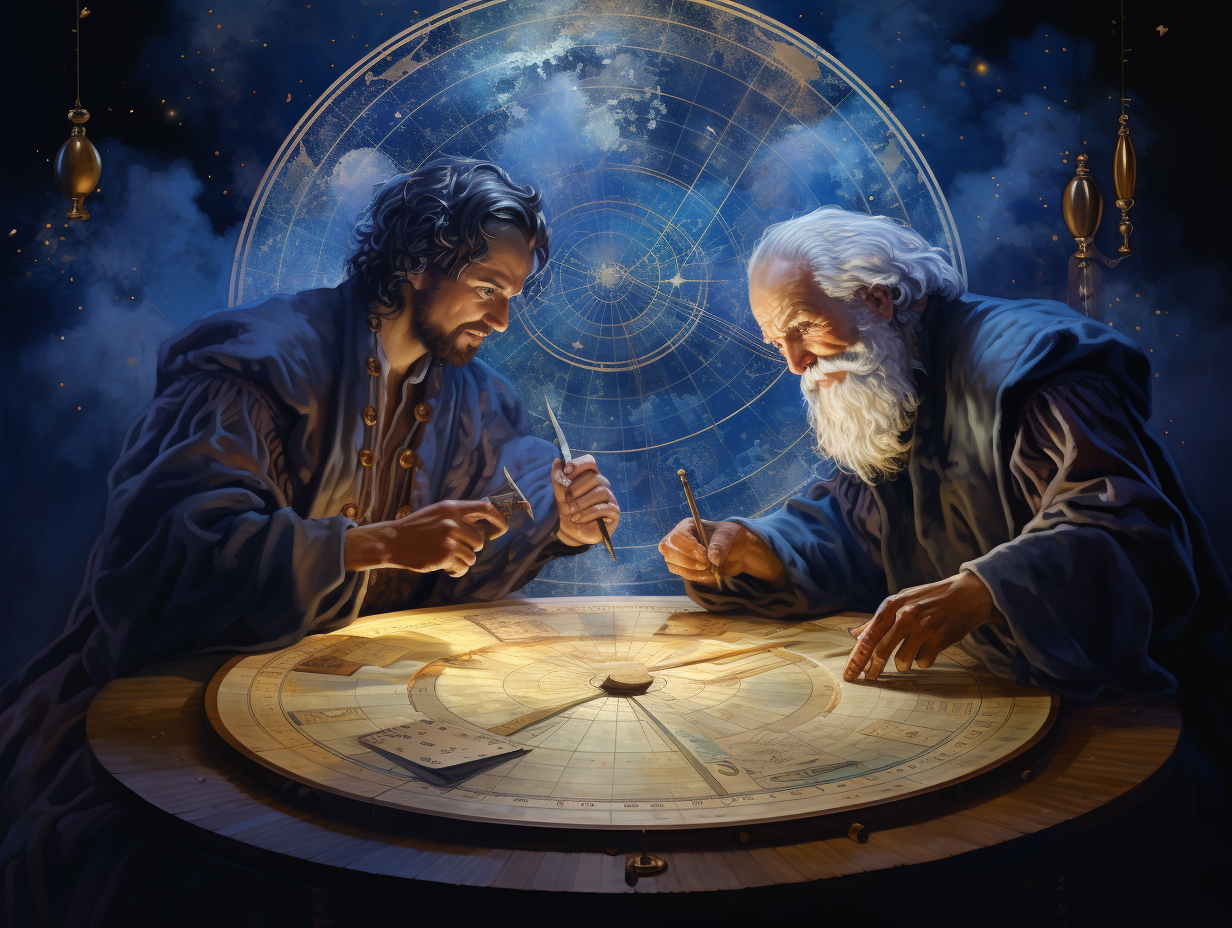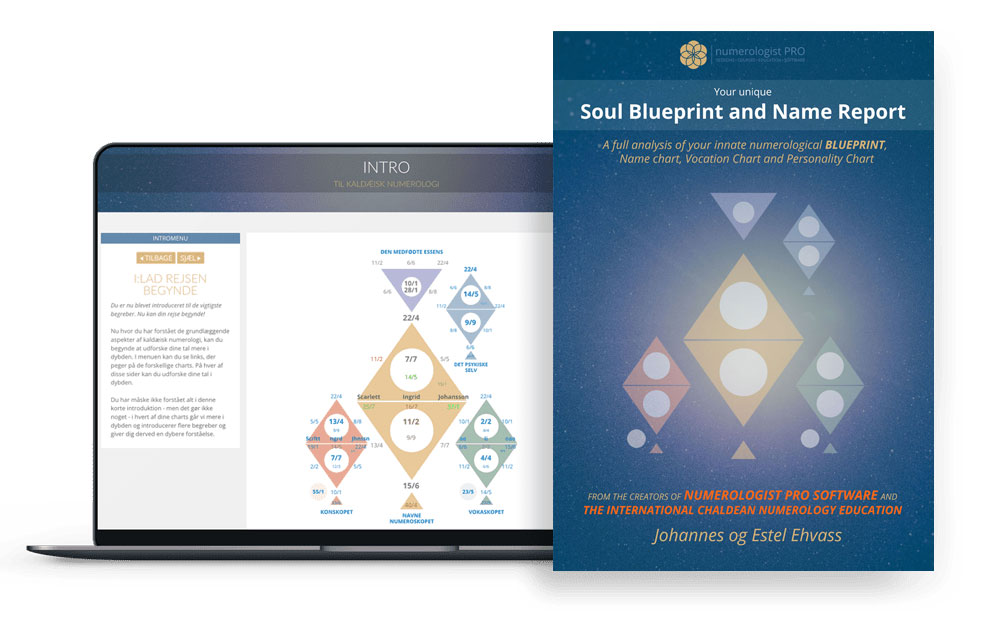Reflections: Medieval Astrology’s Echoes in Modern Practice

Johannes Ehvass
Welcome, dear reader! Together, we embark on a captivating journey into astrology, a timeless art and science that has accompanied humanity since its earliest days. Each astrological discovery not only mirrors the era and culture it emerged from but also feels like a celestial gift, as if the universe is directly speaking to us. Through these articles, I share with you the profound journey of how astrology has grown and evolved alongside us. Let's explore this cosmic connection that has, for millennia, enriched our understanding of ourselves and the universe around us.
Introduction

As we journey through the corridors of time, the profound impact of medieval astrology on modern practice becomes undeniably evident.
The middle ages, with its blend of intellectual diversity and preservation, has bequeathed to modern astrologers a wealth of methodologies and insights.
Today, as practitioners cast charts and interpret celestial movements, the echoes of medieval thought resonate through the centuries.
This article delves into the enduring legacies of medieval astrology and their reception in contemporary times.
Enduring Methodologies and Theories from the Medieval Period
The Twelve Houses
The structure and significance of the twelve astrological houses, as refined in the medieval era, remain foundational in modern practice. While the exact nature and delineation of house systems can vary, the core principle—a division of the celestial sphere into twelve sectors, each representing distinct areas of life—has stood the test of time.
Essential Dignities
Medieval astrologers expanded and systematized the concept of essential dignities, assessing the strength and nature of a planet based on its position in a sign. The table of dignities, which includes rulerships, exaltations, detriments, and falls, is still widely used by traditional and classical astrologers today to glean nuanced insights into planetary expressions.
Fixed Stars
While the ancients, particularly the Babylonians, began the practice of incorporating fixed stars into interpretations, it was in medieval Europe that the usage of specific stars became more systematic. Stars like Regulus, Aldebaran, and Spica, with their attributed significations and qualities, continue to be of importance in natal and mundane astrology.
Electional Astrology
The medieval practice of choosing the most auspicious moment to undertake an activity, known as electional astrology, has persisted into the modern era. Today’s astrologers, when tasked with finding the best date for a wedding, business launch, or other significant events, still employ methodologies honed during the middle ages.
Modern Reception and Critique of Medieval Astrological Practices
Reception: The Revival of Traditional Astrology

Over the last few decades, there has been a significant revival in traditional astrology, which draws heavily from medieval sources.
With the accessibility of translated ancient and medieval texts, as well as the digitization of resources, modern astrologers have rediscovered the richness of medieval techniques.
This has led to a renaissance in the study of older forms of astrology, workshops on medieval methodologies, and a greater appreciation for the depth of insight they offer.
Critique: The Complexity of Medieval Techniques
One critique often leveled against medieval astrology by some modern practitioners concerns its complexity. The intricate rules, myriad considerations, and sometimes convoluted methodologies can be daunting. Some argue that this intricacy can obscure the essence of an astrological reading, while others believe it provides depth and precision.
Cultural and Ethical Considerations
Another critique revolves around the cultural context. The medieval worldview, deeply intertwined with religious and societal norms of the time, influenced astrological interpretations. This raises questions about the applicability and relevance of certain delineations in our contemporary, pluralistic world. Additionally, the deterministic tendencies found in some medieval practices, which might suggest fixed fates or outcomes, have been questioned in the light of modern ethical considerations.
Integration with Modern Methods
Many modern astrologers, rather than dismissing medieval techniques, have sought ways to integrate them with contemporary practices. This synthesis allows for a richer tapestry of insights, bridging the wisdom of the past with the present’s nuances. The result is a dynamic, evolving practice that honors its roots while adapting to the modern world’s needs and complexities.
Conclusion
Medieval astrology, with its rich traditions, methodologies, and intellectual vigor, continues to influence modern astrological practice in profound ways. Its enduring legacies serve as testaments to the intellectual endeavors of scholars and practitioners of the middle ages. As we reflect on these echoes, we are reminded of the timeless nature of the quest to understand the dance of the cosmos and our place within it. By honoring and integrating the wisdom of the past, modern astrology charts a course into the future that is both deeply rooted and expansively visionary.

Johannes & Estel: Renowned authorities in Numerology, Astrology, and the esoteric arts. As the founders of Scandinavia's premier Numerology school, we're delighted to share our insights through this curated series on astrology. Dive in and discover the stars.
The Worlds Most Advanced Numerology Report

Your birthdate reveals your unique life purpose, potentials, talents, weaknesses, and karma in this life.
Your names show what you attract into your life regarding your career, relationships, happiness, money, and success.
GET THE REPORT HERE
Introduction to Astrology
The history of Astrology
Moving beyond deterministic astrology
Foundation of Astrology: Planets, Signs and Houses
Astrology and the Holographic Universe
The Holographic Universe
The Human Psyche as a Mirror to The Solar System
The Human Body as a Mirror to The Star Signs
Astrology Background
Egyptian Astrology
Mayan Astrology
Chinese Astrology
Indian Astrology - Jyotish
Celtic Astrology
Tibetan Astrology
Mesopotamian Astrology
Early Mesopotamian Astrology: The Dawn of Celestial Divination
Enuma Anu Enlil: The Epicenter of Babylonian Celestial Omen Interpretation
Babylonian and Chaldean Astrology
Babylonian and Chaldean Astrology
Chaldean influence and evolution
Chaldean Wisdom: Safeguarding and Transmitting Astrological Knowledge
Hellenistic Astrology
Hellenistic Astrology background
Claudius Ptolemy and Tetrabiblos
Vettius Valens
Dorotheus of Sidon
Persian Astrology
Persian Astrology background
Sassanian Astrology
Late Antiquity and The Transition Period
Late Antiquity and The Transition Period
Hellenistic to Islamic Transition: The Torchbearers of Astrological Wisdom
Islamic Golden Age
Arabian Astrology Background
Arabian Astrology Contributions
Medieval Astrology
Introduction: The Medieval Cosmos
Monastic Preservers: Astrological Knowledge in the Dark Ages
Astrology in Medieval Medicine
Kings, Queens, and Constellations: Astrology in the Medieval Court
The Church and the Stars: A Contentious Relationship
Universities and Scholastic Pursuits: Academic Astrology
Astronomy & Astrology: Tools of the Trade
Medieval Astrological Houses and the Synthesis of Traditions
Transition to the Renaissance: Humanism and the Celestial Arts
Reflections: Medieval Astrology's Echoes in Modern Practice
Astrological Art of the Middle Ages
Famous Medieval Astrologers
Medieval Astrological Texts
Renaissance Astrology
Renaissance Humanism and Astrology
Scientific Advancements and Astrology
The Social Fabric: Astrology in Everyday Renaissance Life
Court Astrologers of the Renaissance
Controversies and Conflicts: Astrology Under Scrutiny
Renaissance Texts and Authors: Continuation of a Tradition
Astrology and Art: Celestial Imagery in the Renaissance
Renaissance Astrological Practices: Evolutions and Innovations
End of the Renaissance: The Gradual Decline of Astrological Influence
Renaissance Astrology's Echo in the Modern World
Enlightenment Astrology
Introduction: The Enlightenment and Astrology
Challenging the Stars: Astrology's Critics during the Enlightenment
Astrology and the New World
Astrology in the 19th Century
The Dawn of Psychological Astrology
Astrology in the 20th Century: A Modern Renaissance
Astrological Associations and Schools
Modern Controversies and Astrology
Astrology and Popular Culture
Astrology and Technology
Current Trends and Future Directions in Astrology
Conclusion: Reflecting on Astrology's Evolution
The Planet Significances
The Sun in Astrology
The Moon in Astrology
Mercury in Astrology
Venus in Astrology
Mars in Astrology
Jupiter in Astrology
Saturn in Astrology
Uranus in Astrology
Neptune in Astrology
Pluto in Astrology
Chiron in Astrology
Black Moon Lilith in Astrology
Pars Fortuna in Astrology
Ceres in Astrology
Houses in Astrology
Introduction to Astrological Houses
The Angular Houses
The Succedent Houses
The Cadent Houses
The 1st House
The 2nd House
The 3rd House
The 4th House
The 5th House
The 6th House
The 7th House
The 8th House
The 9th House
The 10th House
The 11th House
The 12th House
Interaction Between Houses
Derived Houses, House Rulers, and Interceptions
Conclusion: Synthesizing House Knowledge
All Materials © 2023 & 2024 Numerologist PRO
Terms of Service: Information provided by Numerologist PRO and/or from this web site is not intended as advice (medical, psychological, financial or other), nor is it intended to replace your work with a qualified professional (medical or otherwise). You should maintain your relationship with your providers and consider the services of this site as informational only. Any information, stories, examples, or testimonials presented on this website do not constitute a warranty, guarantee, or prediction regarding the outcome of an individual. This web site is a sharing of knowledge and information of numerology/energy work based on the experiences of Numerologist PRO. You are encouraged to make your own decisions based on your own research and inner guidance. By booking and receiving services, you agree to fully release and hold harmless Numerologist PRO and all it's affiliated numerologists from and against any liability or claim that may arise out of or in connection with their service(s).
Numerologist PRO © 2021

CONTACT
numerologist@numerologistpro.com
LIKE US, and get free numerology tools, info about your personal numbers, best business dates of the year - and more!
YOUR FREE NUMEROSCOPE CHART
Enter your name and email below and get access to our free online numerology chart tool.